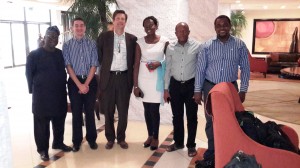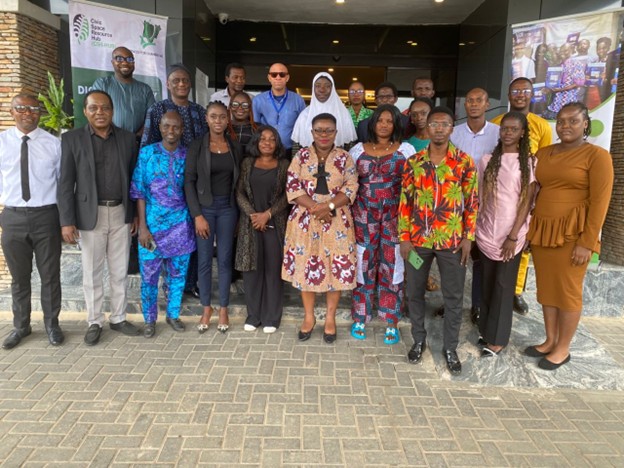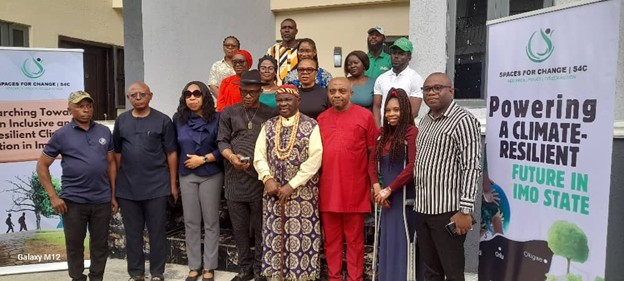
“Building smart, just and climate-resilient cities are possible.” Stakeholders working on issues around housing and urban development, construction, geography, academia, civil society and climate adaptation reached this consensus at a roundtable held on Friday, July 24, 2015 in Lagos. Ndutimobong Enang, Spaces for Change’s Research & Policy Communications Officer, participated in the discussions highlighting strategies for hastening the transition of Lagos Mega City to an urban center grounded in smart , climate-resilient technologies. According to the convener, Hans Verolme, a climate adviser, “experts from across government, the private sector and civil society are consulted to assure the best-available information is used and the potential package of policy measures realistic and meet development needs”.
To participate fully in the upcoming United Nations Framework Convention on Climate Change, Nigeria and all other member nations are required to submit their documentation on Intended Nationally Determined Contributions (INDC). The document among other things is an outline of the post-20-20 climate actions each country intends to take under the new agreement. It is expected that the sum total of all the INDCs should stop global warming by ensuring global temperature does not rise above 20C.
A few countries so far have submitted their INDCs. They include America, China, Russia and Morroco. Nigeria is still in the final stages of putting together their INDC. It is expected that the documents will be submitted before October, 2015. Nigeria’s INDC drafting process was launched in April 2015 and as part of best-practices by the Nigerian task team. A group of expert advisers on climate have been drawn from various industries and countries to help Nigeria prepare her INDC.
Ms. Enang harped on the importance of easing the bureaucratic bottlenecks involved in land acquisition process in order to facilitate housing development in the mega-city. The titling regime or title regularization procedure is a painstakingly slow exercise. As has been documented, the consent process in Lagos State is fraught with great difficulties: it is costly (with fees assessed at upwards of 35 per cent of the market value of the underlying land), corrupt, laced with bureaucratic delays, and outrightly exploitative with the result that only a very small percentage of land or property owners ever bother applying for such consent. Other participants made suggestions for improving waste management, social amenities and developing an integrated housing development plan to accommodate the high, middle and low income families living in slum and poorly-serviced neighbourhoods. Another suggestion encouraged the provision of incentives to entrepreneurs and investors in sustainable green building projects as this will significantly lower the carbon footprint of the Lagos mega city project.
The Nigerian INDC will be subject to approval by the Federal Executive Council and it is expected that come 24th September this year, President Muhammadu Buhari “may choose to announce the plan when he addresses the UN General Assembly in New York. At the Paris, December 2015 United Nations Convention on Climate Change (UNFCCC), the new agreement will be signed.



